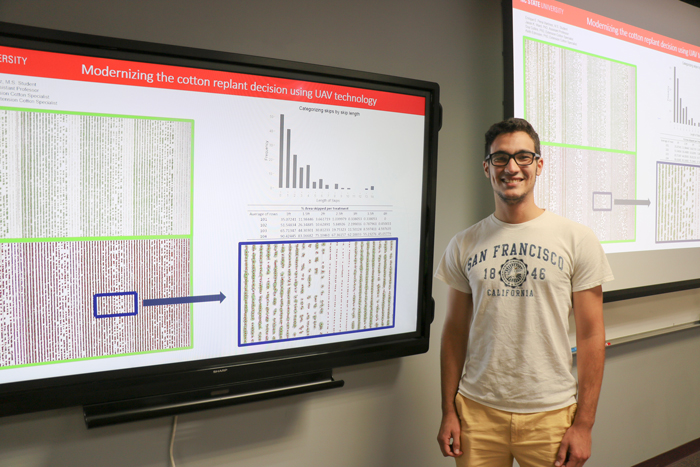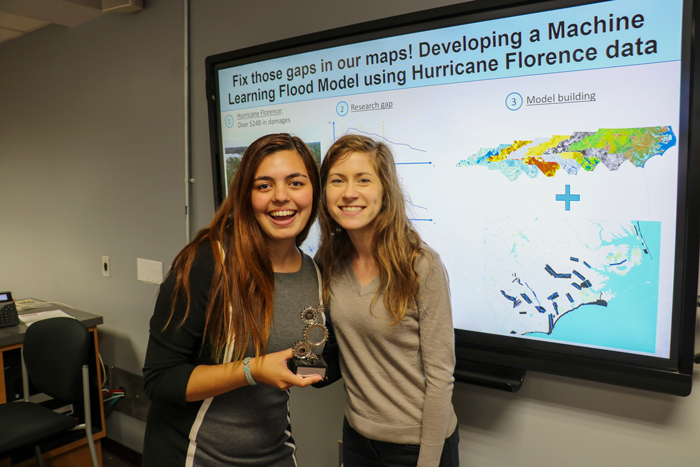The Three Minute Thesis is an annual competition held at universities worldwide. It challenges graduate students to explain their thesis in three minutes or less using one static slide. For the past several years, BAE has held its own version of the event – but with a twist. Faculty were placed on the hot seat and challenged to explain their research in three minutes or less. This year, graduate students took on the challenge and competed in the 2019 BAE Three Minute Thesis. See all of the 2019 Three Minute Thesis presentations here.
Graduate students Emine Fidan came in first place, Caleb Mitchell came in second place, and Enrique Pena came in third place and was also voted the People’s Choice.
“The Three Minute Thesis competition challenges me to synthesize my research into a three-minute presentation slot,” notes Pena, who is advised by Dr. Jason Ward who also won the People’s Choice vote in the 2018 Three Minute Thesis Competition. “This competition allowed me to enhance my public speaking abilities, test my knowledge on the subject, and increase my overall confidence on my research. The outcome of this competition will be very useful when it comes down to presenting my research to industry.” He presented on one of his research topics, modernizing cotton replating decisions with UAV technology.

“The project consists of developing a tool that will tell cotton growers when the replanting decision is justified based on skipped percent areas and yield,” Pena explains. “The tool uses unmanned aerial vehicles (UAVs), or simply “drones”, to collect imagery over cotton fields.”
Fidan, who came in first place, presented on her Ph.D. project which works toward developing a flood model that displays flooding inundation within a large scale to further understand the dynamics of flood hydrology in North Carolina. She is advised by Dr. Natalie Nelson, the winner of the 2019 Three Minute Thesis Competition.
“I thought it was important to present my project because my colleagues within the Department of Biological and Agricultural Engineering work on a diverse array of projects. I wanted to include a representative project that displays how data analytics can be applied to environmental and agricultural systems. My goal was not only to introduce my PhD project, but also to generate a greater appreciation of data analytics and modeling applied toward understanding the natural world around us.”

Caleb Mitchell presented on his work with advisor Dr. Bill Hunt and the Stormwater Engineering Group. He focused on the changes that occur to natural hydrology when watersheds become urbanized, and how engineers can design stormwater controls to mimic natural pre-development hydrology by including a submerged, continually-saturated, gravel layer. The stormwater control measure that exemplifies this natural hydrology is the subsurface flow gravel wetland.
And what did Mitchell get out of the experience?
“Nerves, anxiety, or fear. These are emotions that can be felt before, during, and even after a presentation. These emotions are amplified by a presentation time constraint of three minutes. To be able to control your fear, harness your anxiety, and present with confidence for a three minute summary of your entire research is a talent that translates to many different aspects of professionalism.”
The event was organized by the BAE Graduate Student Association. Voting was conducted by a panel of faculty and undergraduate students.

The event was organized by the BAE Graduate Student Association. Voting was conducted by a panel of faculty and undergraduate students.

